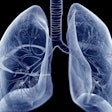
Patients who self-reported having poor oral health may be as likely as those already diagnosed with gum disease to have negative systemic health outcomes. The study was recently published in the Journal of the American Dental Association.
Regardless of the number of teeth they had, patients who visited the dentist infrequently, engaged in limited flossing, and self-reported fair or poor oral health may face an increased risk of all-cause mortality, the authors wrote.
"Self-reported oral health had a similar magnitude of associations with systemic comorbidities as established with PD (periodontal disease) previously," wrote the authors, led by Dr. Yau-Hua Yu, MMSc, DMSc, an associate professor of periodontology at the Tufts University School of Dental Medicine (JADA, January 24, 2024).
University researchers used self-reported oral health questions to further understand the link between comorbidities of gum disease and their effect on overall mortality. Using two distinct very large datasets -- the Women's Health Study and the National Health and Nutrition Examination Survey (NHANES) -- the authors analyzed information on periodontal disease, oral health questions, cardiovascular disease, diabetes, osteoporosis, and mortality in various time frames.
Patients from the Women's Health Study who reported having periodontal disease in 2006 were more likely to report in 2018 that they had deteriorating oral health, bone loss, or periodontal treatment, they wrote.
Those who rated themselves with fair or poor dental health was associated with an elevated risk of heart disease (odds ratio [OR], 1.39; 95% confidence interval [CI], 1.14 to 1.69; p < 0.001), diabetes (OR, 1.21; 95% CI, 1.02 to 1.43; p = 0.028), and osteoporosis (OR, 1.60; 95% CI, 1.38 to 1.84; p < .001).
Furthermore, NHANES participants who self-rated fair or poor oral health faced greater risks of all-cause mortality (hazard ratio, 1.18; 95% CI, 1.02 to 1.37; p = .027), the authors wrote.
Nevertheless, the study had limitations, including the cross-sectional nature of the Women's Health analyses and different timing of gum disease and oral health question data limits causal interpretation, they wrote.
"Our finding of increased all-cause mortality among those having suboptimal dental visits emphasized the urgency of addressing barriers to accessing oral health care," Yu and colleagues wrote.



















